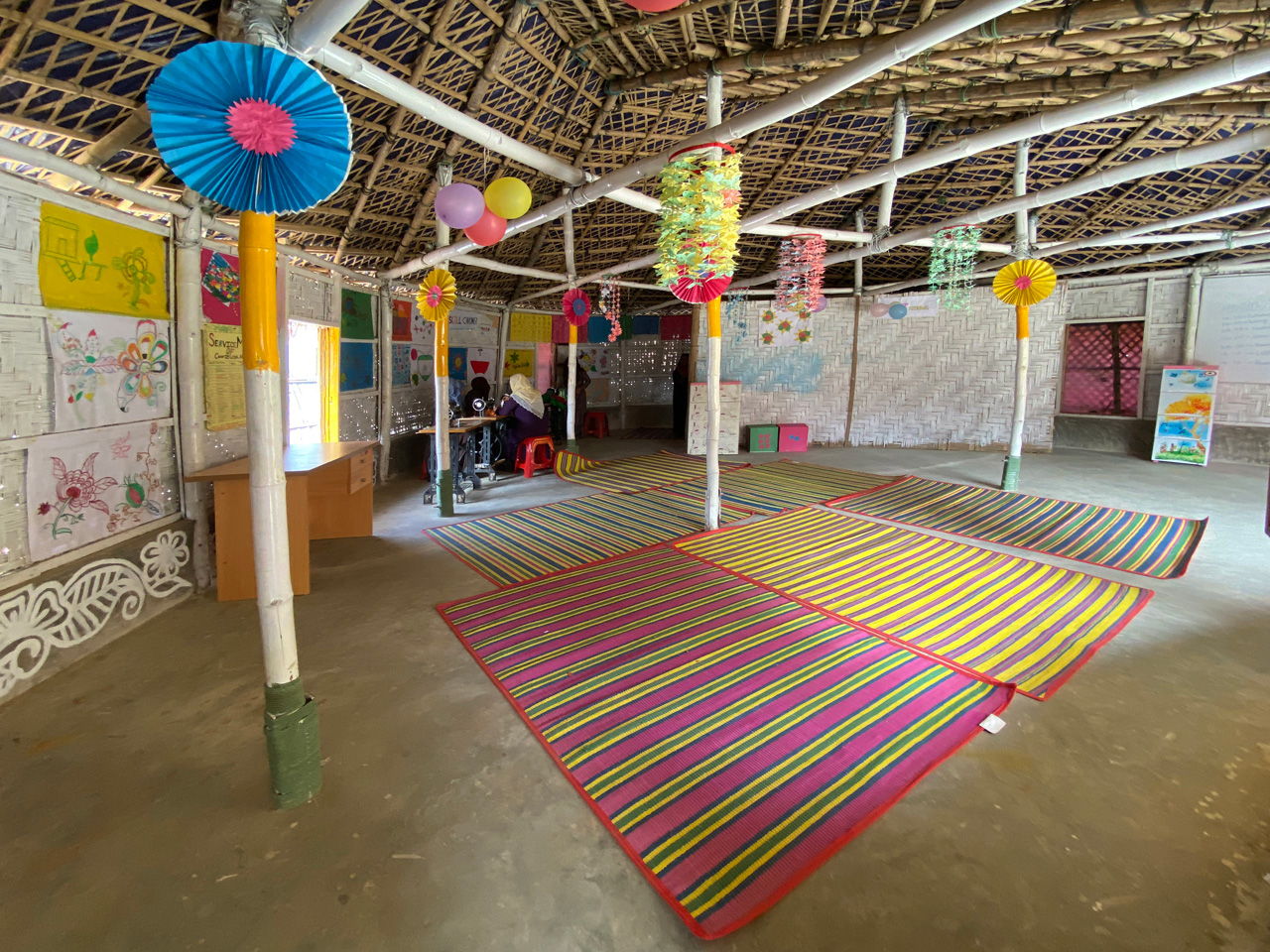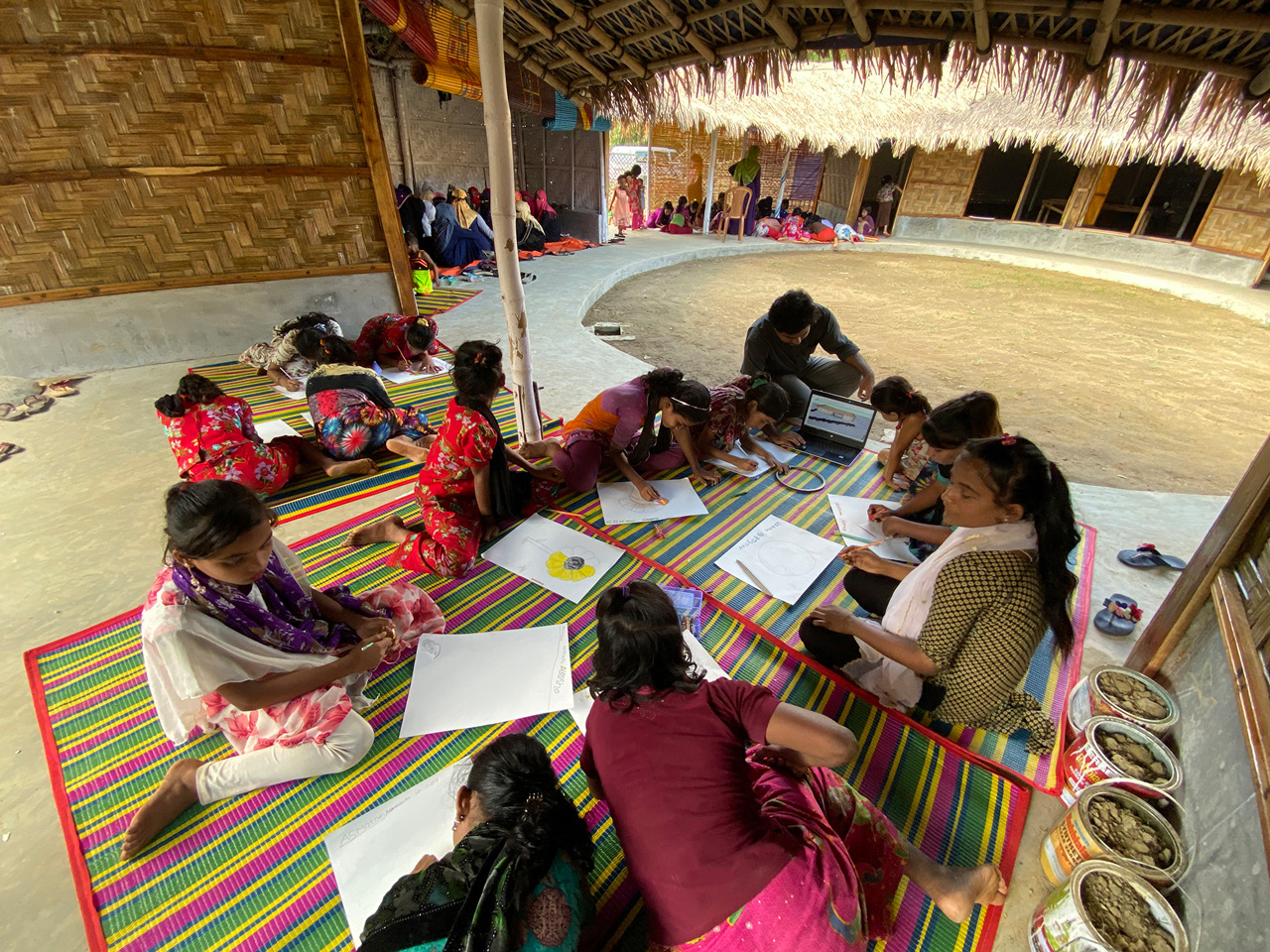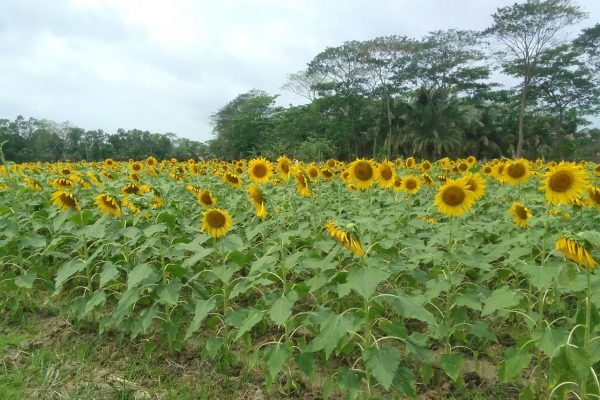Reading Time: 2 minutes
June marks nine months since the creation of a special place in the world’s biggest refugee camp. A place where, amidst the congested shelters, women can access counselling, participate in learning and find peace – in a beautiful, natural, artistic space. The Beyond Survival project in Cox’s Bazar, spearheaded by architect Rizvi Hassan, is a place to thrive.
Beyond Survival is a Safe Space for Women and Girls, situated on the edge of Camp 25. The space serves as a platform, allowing Rohingya women and girls to advocate for basic services, providing women access to community support networks and strengthening social relationships. It was designed and built by Rohingyas.
Read more: Celebrating World Refugee Day
The forced displacement of almost one million Rohingyas from Myanmar to Bangladesh in August 2017 left the community feeling like a ship without an anchor. The loss of homes and possessions, temporary living arrangements in makeshift shelters and a denial of nationality imprinted a sense of dissociation and a loss of any feeling of safety. As time went on, and dependency on aid increased, those feelings increased. The effects were disproportionately felt by girls and women.
In designing Beyond Survival, the priority was to create a feeling of safety and familiarity for girls and women.

“The centre looks like a flower and we love the courtyard!” says Mukarrama, an adolescent girl who uses the space.
The design process began with a focus group discussion involving mostly Rohingya women. Once the needs were agreed on, construction started, using locally-available materials such as bamboo, straw, and tarpaulin. The building of the space was led mostly by the Rohingya men, who worked as daily masons and worked diligently beyond what was assigned to them. Many Rohingya men are known to be expertly very skilled at using bamboo, and woodwork in general.
Read more: This #WorldRefugeeDay, meet your mask-maker
The interior decoration was led mostly by the Rohingya girls and women. They took control of what the men had built and covered the structure with vibrant artwork and colours, which are continuing to be added to by girls and women using the space.

Socially engaging design and building processes have myriad benefits. In addition to collaboratively creating a very aesthetically pleasing space, a crucial indicator of success for Beyond Survival has been that the males from the camp have been eager to get their family members (wives, daughters, mothers, sisters) involved with the centre activities. This is in comparison to other centres where there have been reports about restrictions and unwillingness.

“We have been busy since the day we opened. I think the fact that the community using it built it themselves is the key. The space is filled with all ages – young children love to play in the interior court, adolescent girls like the privacy and the discreet shower and toilet facilities, and women enjoy the relaxing areas” comments Rizvi Hassan, architect of Beyond Survival.

COVID-19 has highlighted an additional benefit of Beyond Survival – the mix of open plan and private spaces and focus on natural light and airflow has facilitated safe physical distancing, so the space could stay open through the pandemic. Skills training has temporarily stopped, but psychosocial support and case management have continued, and all participants are now taught best practices for stopping the spread of the virus.
There are 80 million people currently displaced worldwide. The least we can do, if we can’t give them permanent homes, is to support them to preserve their sense of identity until a solution is found. Beyond Survival is an example of frugal innovation which does that, and exemplifies that the people closest to challenges are often also closest to the solutions; they just need the tools, information and support to implement them.
Rubab Al Islam is a communications specialist and Sarah-Jane Saltmarsh is the head of Programme Communications, BRAC.





